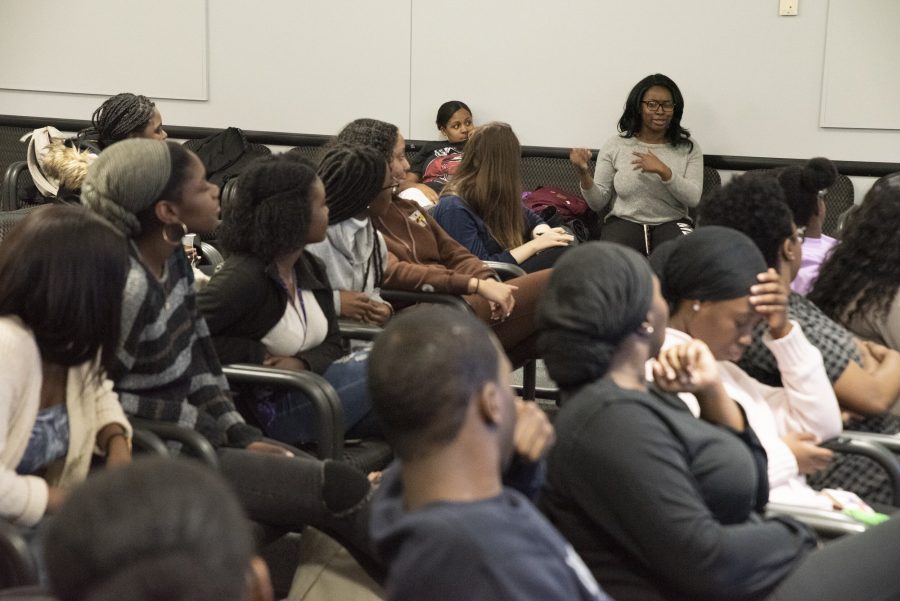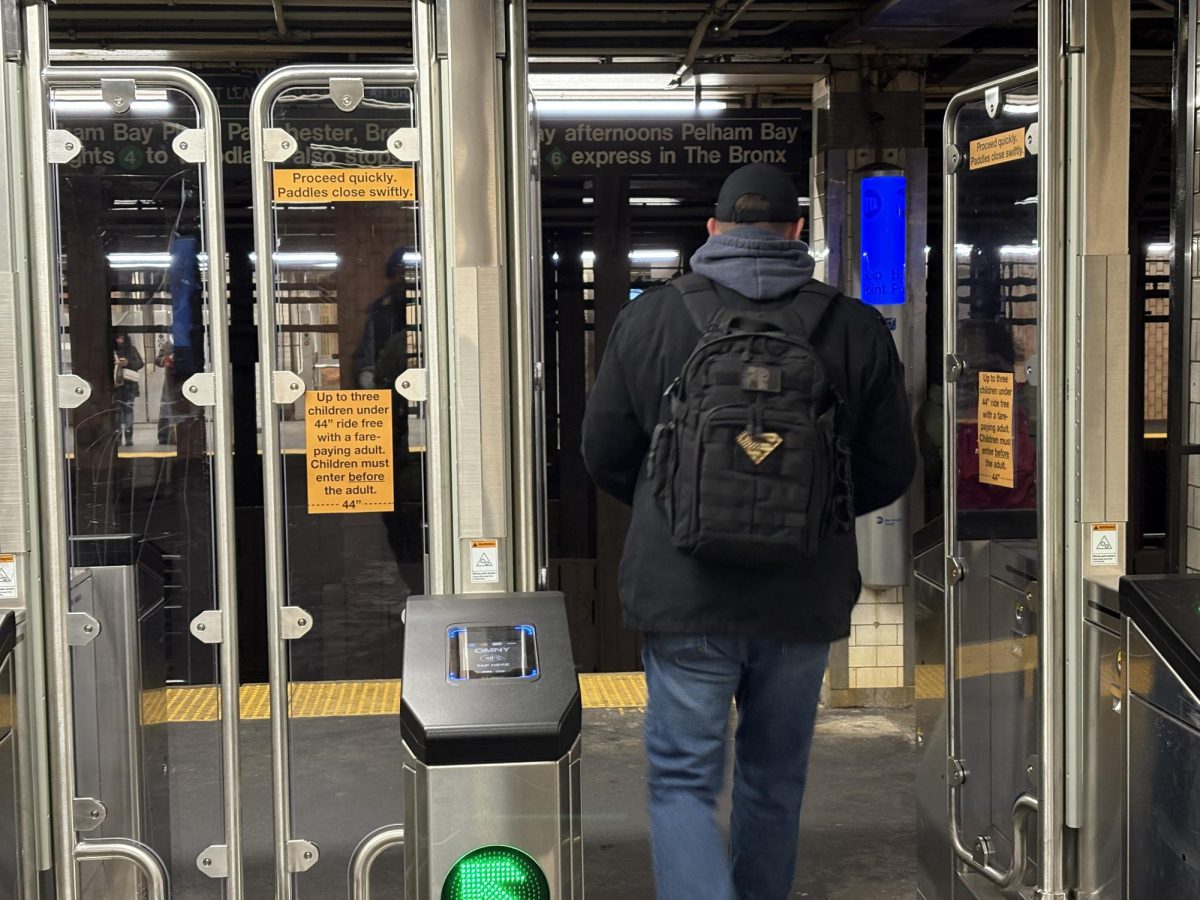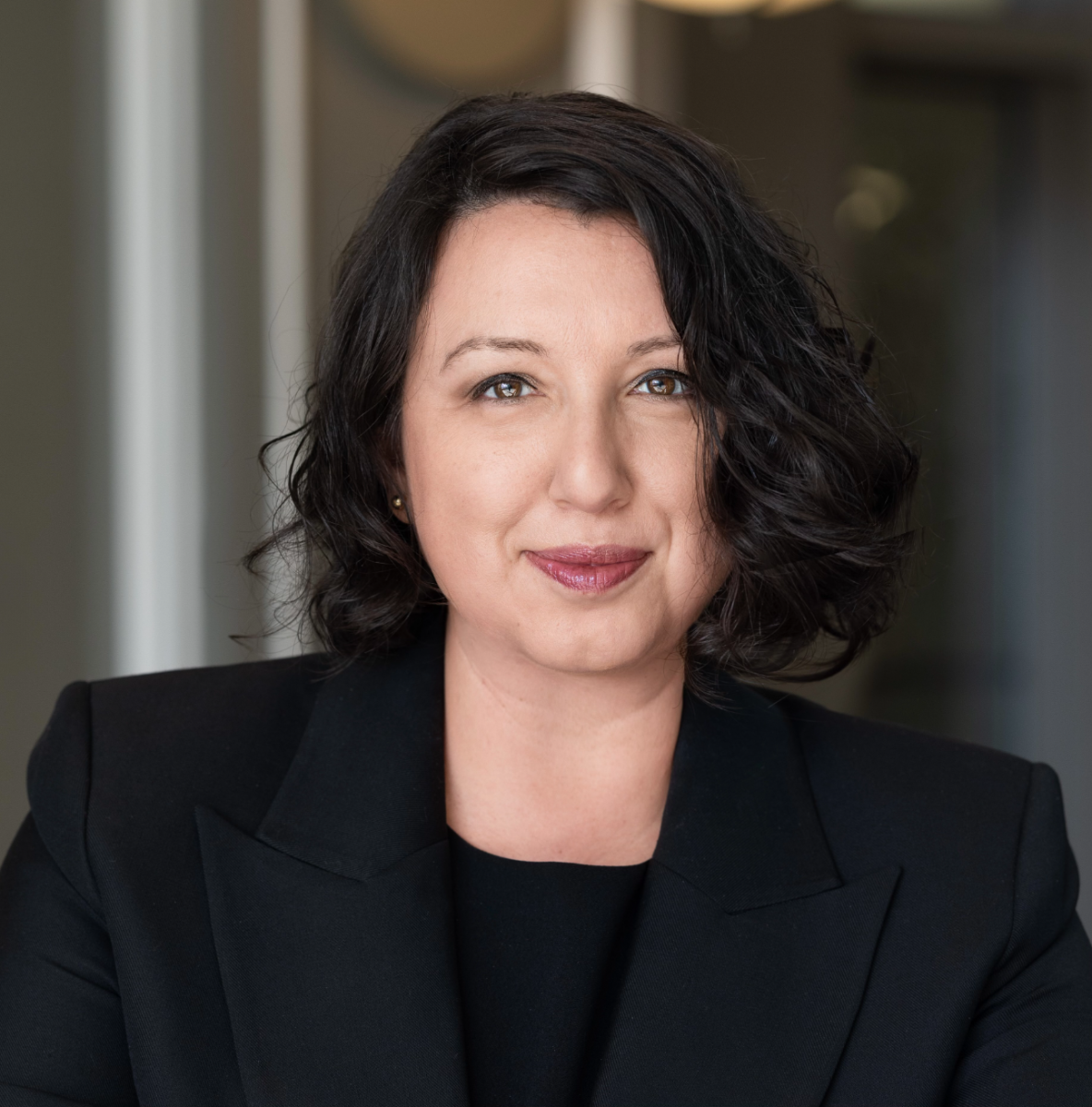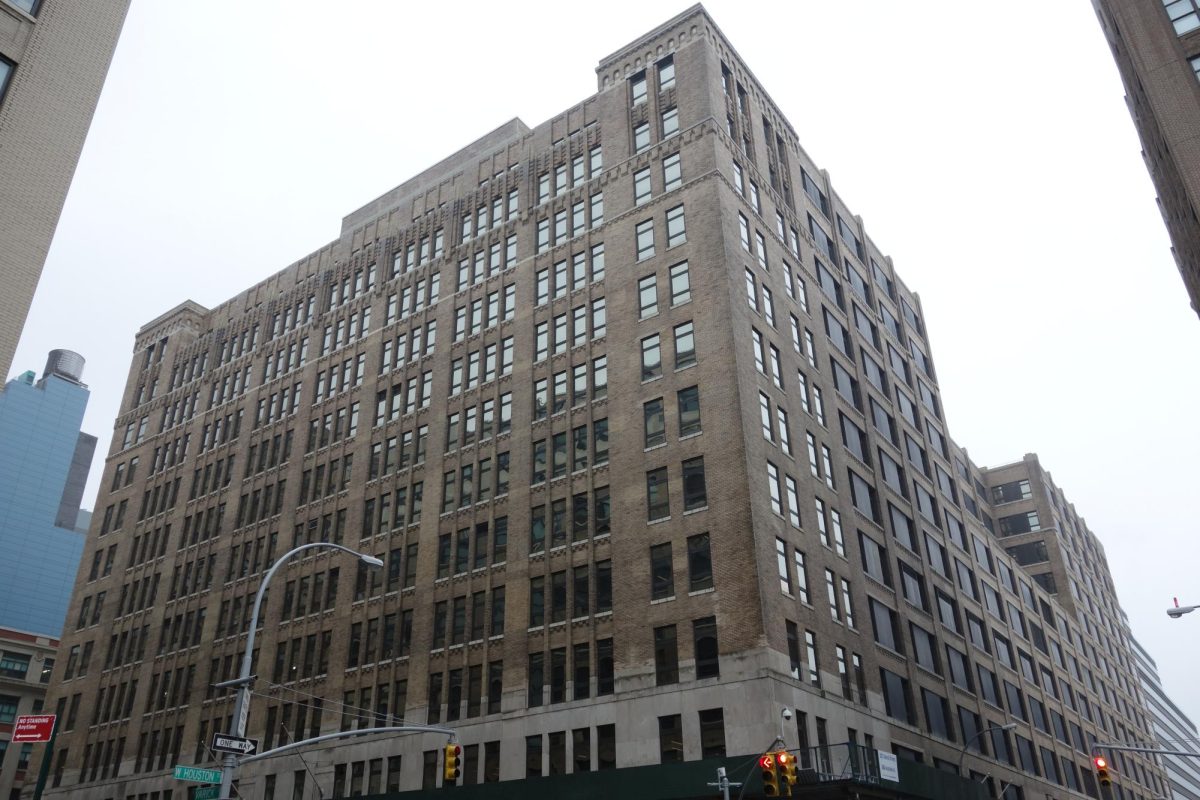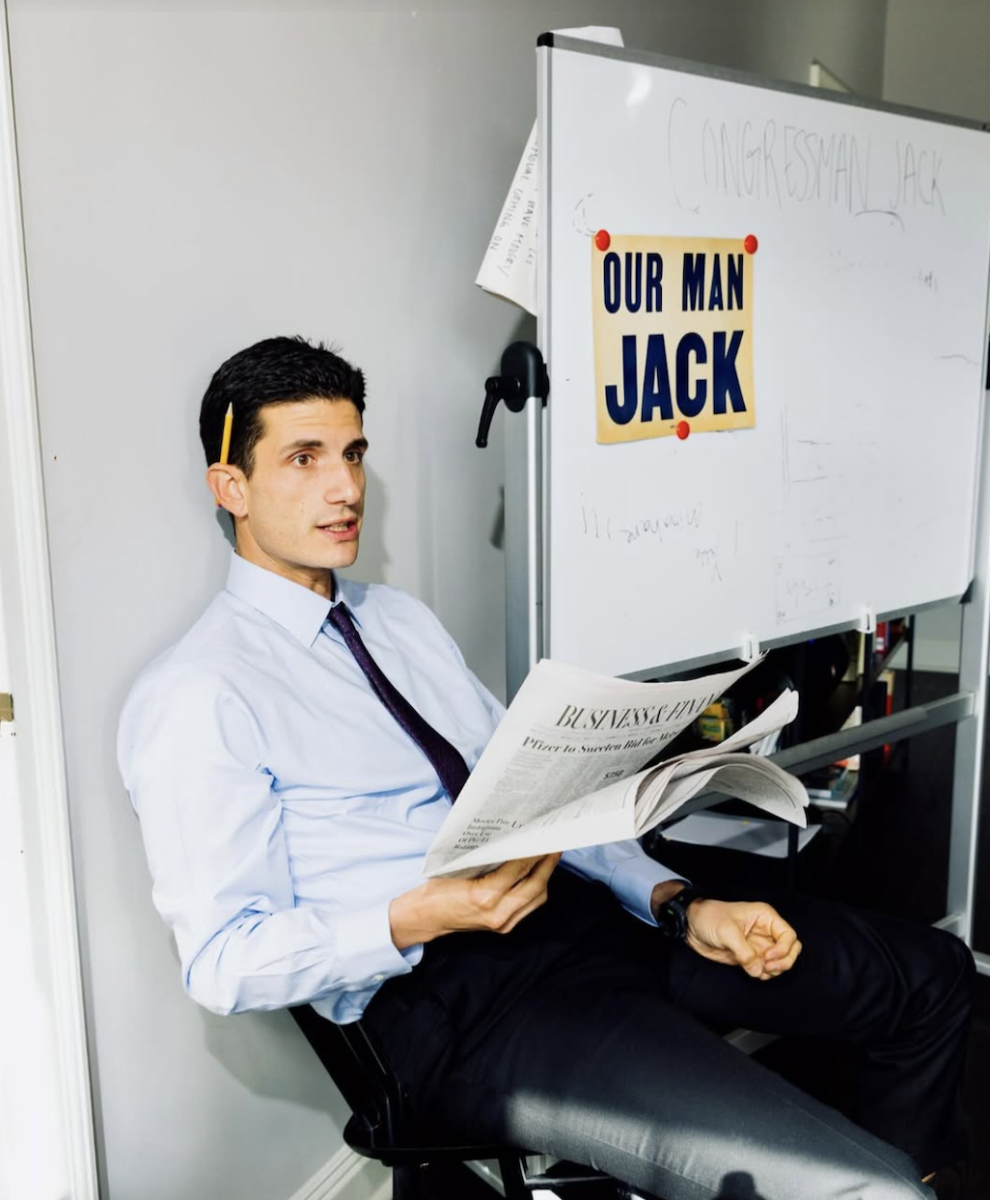Baruch College’s Black Student Union hosted “Curl Fest” on Feb. 13, an event dedicated to celebrating hair of all kinds.
Hair is an essential part of one’s personality and style, and for black students at Baruch and worldwide, it’s also an essential part of their identity.
“We wanted to showcase black people’s hair and really embrace it and learn ways you can take care of it and stuff like that as well,” BSU Treasurer Jenebou Sylla said when asked why the club decided to host the event. “It’s a chance to highlight our culture.”
“I always come out to the BSU events because it’s just such a sense of community,” Yestin Pierret, a first-year majoring in finance, said. “I also wanted to know more about how to take care of my hair and how to treat it.”
Students started the event with a meal of chicken, Caesar salad, mozzarella sticks and soda.
After facing some technical difficulties, the event kicked off with ice breakers.
Attendees were asked to stand up, introduce themselves, share their favorite hair style, talk about their hair journey if they had one and finally share a hairstyle that they really love but that can really damage hair.
Those who shared mentioned a multitude of styles that they tried — perms, wigs, protective hairstyles, curls and weaves, just to name a few.
The next part of the event was a game of Kahoot!, titled “How well do you know your curls?”
The game asked players 13 questions about different ways to properly care for hair, what different hairstyles are called and what certain hair conditions are called.
Most attendees knew the answer to most, if not all, of the questions, but a few that divided the room were, “What is the best state in which to detangle your hair?” and “What are braids under your wig called?”
The winners of the game won a hair bonnet and a voucher for hair products.
The next part was a discussion part about hair controversies.
Event attendees debated whether to use hair grease and whether to flat-iron hair before braiding.
One notion that came out of the discussion was how rampant discrimination is among hairstylists when it comes to styling black hair.
Besides prices for hair braiding constantly rising, some stylists charge fees just for washing or straightening the client’s hair in the process.
This contributes to young people of color growing up thinking that their hair is an inconvenience, and “Curl Fest” aimed to break down these stigmas and help everyone embrace their hair, no matter how it’s styled.
The penultimate part of “Curl Fest” was called “Story Time.” Attendees were prompted to answer how long have they been wearing their natural hair, what challenges they have faced and what have they learned throughout their hair journey.
Common sentiments included how certain students’ families did not embrace their natural hair and conditioned them to style it from a young age, and how once students did embrace their natural hair after trial and error, they felt much happier and comfortable in their own skin.
The final part of the evening event was a braiding challenge.
The room was split up into four groups. Each group had one braider, one model, and other students cheering them on.
The braiders had just a few minutes to create a neat braided hairstyle.
This perfectly ended an event that was all about coming together but also embracing oneself and one’s culture.
“I think it means everything to me,” Pierret said, when asked what his hair means to him.
“If my hair is not looking good in the morning, that means I’m probably going to have a bad day. But like, I think it’s a little piece of my culture and my personality and just representative of who I am. Just being proud of my skin color.”
Earlier in the evening, Pierret shared the story of how he grew to embrace his natural hair after years of trying different styles, cuts and textures, such as a Neymar-like mohawk and waves.
“I love it. It’s a lot of talking and a lot of community. I feel like we’re just hanging out and stuff. It’s more friendly, it’s like a gathering,” Pierret said when asked about what he thought of the event.
Sylla echoed Pierret’s sentiment.
“I love it, everyone is showcasing and embracing their hair,” she said.
“My hair means to me — it’s my crown,” Sylla continued. “My hair means everything to me because it’s my identity. So, when I go home and I look at myself, I’m just like ohmigod, I’m a baddie.”
Throughout the entire event, Sylla encouraged all attendees to share their hair stories and discuss how experiment with their hair impacted their lives.
“Hair is an individual journey,” Sylla said.


